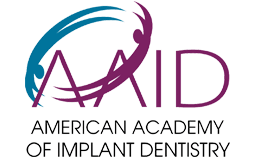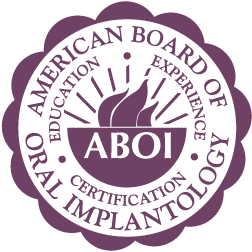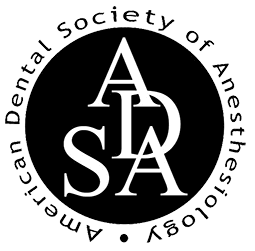Diet Tips from Dr. Richard Grubb
Once fully healed and integrated into your jawbone, dental implants give you the chewing strength you need to enjoy all your favorite foods. However, it’s important to avoid certain foods the first few weeks after they’re placed for a successful implant treatment. After your procedure, Dr. Grubb will provide you with instructions on how to care for your fixtures as they heal over time as well as what foods to avoid.
Explore our guide below to learn some helpful tips for your post-surgery diet.
Foods You Should Avoid
To prevent your dental implants from getting damaged and setting your treatment back, you should avoid the following foods for at least a week after your implant surgery:
- Tough Foods: steak and raw vegetables
- Crunchy Foods: popcorn and chips
- Sticky Foods: caramel and taffy
- Chewy Foods: gummies and bagels
- Spicy Foods: hot peppers and salsa
- Acidic Foods: oranges and tomatoes
- Hot Foods & Liquids: coffee and soup
What to Eat the Day After Your Surgery?
After your dental implants are placed, your teeth and jaw will be in a very delicate state. It’s important to stick to a soft-food diet for the first 24 hours after surgery. Dr. Grubb recommends incorporating the following foods to help with your meal planning:
- Smoothies: contain essential vitamins to restore your energy. Smoothies also don’t require any chewing, making them an ideal meal option.
- Applesauce: provides many nutrients without harming your dental implants.
- Cold Soups: While it’s necessary to avoid hot foods and liquids, you can still enjoy cold soups such as gazpacho.
When drinking liquids, it’s important to avoid using a straw, since the suction force puts pressure on your implant and can interfere with the healing process. You should also refrain from drinking alcohol or smoking for at least a few days.
Foods to Help With Your Recovery
As your jawbone continues to heal, you can slowly reintroduce solid foods into your diet. Dr. Grubb recommends choosing meals that are rich in protein and other essential nutrients in order to speed up the recovery process. Some of these include:
- Eggs & Omelets: Eggs are easy to chew and filled with protein. Mix them with vegetables to make an omelet for a well-balanced diet.
- Potatoes: Potatoes are very versatile and can be prepared in several different ways without losing their soft texture.
- Chicken, Fish, & Ground Beef: Dr. Grubb recommends slowly introducing meat back into your diet. Start with softer meats like chicken, fish, and ground beef that can be finely chopped into salads or pasta for a more delicious meal.
- Milk, Cheese, & Yogurt: Dairy products are loaded with protein and calcium that can help in the healing process and keep your teeth strong.
Frequently Asked Questions
Why is protein intake necessary after implant surgery?
Protein is essential during the healing process for your surgery. Not only is it important to build and repair gum tissue affected by dental implant surgery, but it also helps the body fight potential infection. Dr. Grubb recommends that you eat more protein than you might normally consume so that you can boost your body’s healing abilities.
How do I add protein to a soft-food diet?
It’s easy to keep your protein intake high while focusing on soft foods. Some simple steps you can take include:
- Adding protein powder, avocado, or peanut butter to smoothies
- Implement soft dairy products like yogurt that are rich in protein
- Enjoy some protein-packed eggs or beans
In the weeks following your dental implant surgery, you’ll also be able to incorporate meat back into your diet — just be sure to start with softer meats like ground beef, chicken, or fish.
What if I don’t have an appetite after implant surgery?
It’s completely normal for patients who have recently undergone dental implant surgery to not have much of an appetite afterwards. You might be nervous to eat because you’re concerned if it’ll be painful or damaging to your mouth. Dr. Grubb will work with you and slowly reintroduce the necessary foods you need back into your diet to help with the healing process.
How will I know what foods to eat after implant surgery?
Following your dental implant surgery, Dr. Grubb will make sure that your mouth is able to tolerate food, so you don’t need to worry about causing damage to the treated area. You will also be given medication to ease your discomfort and be advised to eat soft, cold foods, since they feel good on the gums.
Focus on soft foods that you love, and add protein wherever you can. Gradually, your teeth will become stronger and you’ll soon be able to eat a wider variety of foods.
Ease Your Recovery With Dr. Grubb
If you’re recovering from dental implant surgery, Dr. Grubb can make the process easier by guiding you on what foods to eat. Our expert staff will monitor your progress and observe the health of your new teeth to ensure that your implants are successful.
Contact Family Implant & Reconstructive Dentistry by calling our office at (410) 939-5800 or by filling out an online contact form.




